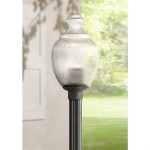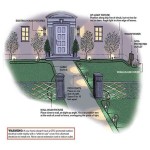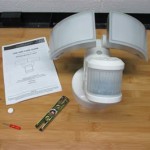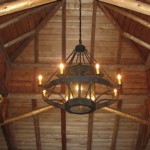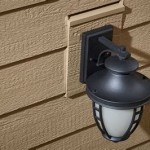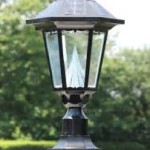Health and Safety Considerations for Outdoor Lighting
Outdoor lighting plays a crucial role in enhancing the safety and security of residential and commercial properties. Well-designed outdoor lighting can deter crime, improve visibility, and enhance the overall aesthetic appeal of a space. However, it's essential to consider the potential health and safety factors associated with outdoor lighting to ensure its responsible and beneficial use. This article will delve into some key aspects of health and safety related to outdoor lighting.
Light Pollution and its Impact on Health
One of the most significant health concerns associated with outdoor lighting is light pollution. Excessive artificial light at night can disrupt natural circadian rhythms, impacting sleep patterns and overall health. The human body is designed to follow a natural sleep-wake cycle regulated by melatonin, a hormone produced in darkness. However, exposure to artificial light, especially blue light emitted from some LED lights, can suppress melatonin production and disrupt the body's internal clock. This disruption can lead to various health issues, including insomnia, fatigue, mood disorders, and an increased risk of certain types of cancer.
To mitigate the impact of light pollution, it's essential to choose lighting fixtures that emit warm white light with lower blue light content. Additionally, using appropriate shielding to direct light downwards and minimize spillover can significantly reduce light pollution. Implementing timers or motion sensors to limit the duration and intensity of light during nighttime hours can further reduce light pollution while ensuring adequate security.
Glare and its Impact on Safety
Another significant concern related to outdoor lighting is glare. Excessive brightness from poorly designed or improperly positioned fixtures can create glare, which can impair visibility and lead to accidents. Glare can be particularly hazardous in areas with high traffic, such as roadways and parking lots. It can also pose a safety risk for pedestrians and cyclists, making it difficult to perceive obstacles or oncoming traffic.
To minimize glare, it's crucial to select lighting fixtures with appropriate shielding and light distribution patterns. Using fixtures with cut-off shields or diffusers can help direct light downwards, reducing glare and improving visibility for pedestrians and drivers. Additionally, it's important to consider the placement of fixtures to ensure that light sources are not directly in line with pedestrian or vehicle pathways.
Safety Considerations for Outdoor Lighting Fixtures
Beyond light pollution and glare, it's also crucial to consider the safety of the outdoor lighting fixtures themselves. Some fixtures may pose hazards if not installed or maintained correctly. For example, improper wiring can lead to electrical shocks, while faulty fixtures can overheat and potentially cause fires. It's essential to ensure that all outdoor lighting fixtures are UL-listed, indicating they meet safety standards.
Regular maintenance and inspection of outdoor lighting fixtures are essential to ensure their continued safe operation. This includes checking for loose connections, damaged wires, and any signs of overheating. It's also crucial to ensure that fixtures are properly grounded and protected from the elements. By following these safety precautions, property owners can minimize the risk of accidents and electrical hazards associated with outdoor lighting.

Reduce Light Pollution With Better Outdoor Lighting 5 Principles

Outdoor Lighting At Night Doesn T Do What You Think It Does To Reduce Crime And Increase Safety Darksky International

Light Pollution Compromises Security And Safety

The 3 Best Smart Outdoor Lights For Backyards Of 2024 Reviews By Wirecutter

Reduce Light Pollution With Better Outdoor Lighting 5 Principles

Sustainable Outdoor Lighting Principles Night Skies U S National Park Service

Reduce Light Pollution With Better Outdoor Lighting 5 Principles

The 3 Best Smart Outdoor Lights For Backyards Of 2024 Reviews By Wirecutter

Using Dark Sky Approved Lighting To Reduce Light Pollution

Reduce Light Pollution With Better Outdoor Lighting 5 Principles
